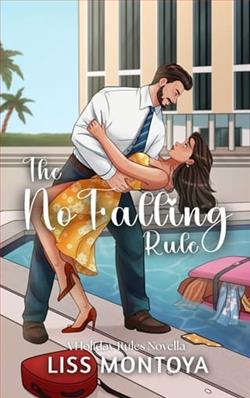Page 2 of The Space Traveller's Lover
The changing global temperature and ubiquitous low-pressure systems provoked long spells of disruptive weather, making reliable forecasts almost impossible. With recurrent episodes of widespread floods and droughts, this worldwide unstable climate caused the whole of humankind to reorganise themselves to survive against all the odds—even if it meant the total upheaval of long-held customs and values.
Managing food and water supplies and efficiently distributing them to the areas where they were most needed demanded a rigorous, centralised effort for a faster, worldwide, effective response.
Survival had become the number one priority. “First and foremost, survival”—that was the slogan of the time.
The existing world order was not good enough, fast enough, or fair enough. There had been no other option but to change it. Countries had merged into regions, and regions had merged into alliances. Alliances hadmerged into one administrative coalition—the ARA (Aid and Recovery Alliance).
The ARA’s INST (Instant) Network regularly updated the food storage levels and distribution status, weather conditions, and areas in most need of help. Self-organising rapid assistance brigades were always ready to act, as they were dispatched to assist with ongoing emergencies. The whole interconnected world was now in a constant state of alert, response, and action.
During her first year at high school, Erin often volunteered to help distribute food and drinking water to evacuees of powerful storms on both her island and others nearby. She took it close to her heart, not only the plight of the islanders but also that of Mother Nature. Through her tireless work, she became widely known and admired, and she felt revived and accomplished. At her teacher’s insistence, Erin applied and was admitted to the prestigious university’s early entrance program in Los Angeles when she was fifteen. But after finishing the first year of her math degree, and to everyone’s surprise, she decided to go back home, much to the Lobarts’ chagrin. She explained she missed her island dearly—the immense blue sky, the boundless sea, and her beloved farm animals.
But her adoptive parents could not fully understand why Erin chose to go back to finish high school instead of staying at the university. “The university can wait,” she had said. Of course, they were then quick to conclude that it was all about a boy, the charmingly attractive Sam Sheppard.
Sam had welcomed her decision with unreserved pleasure. After all, Erin had been his best friend since she arrived on the island. Even better, she was working at the farm for the summer season as well.This time is the perfect opportunity to tell her about my true feelings, he thought.
Erin’s main job at the tuna farm is checking on the timely execution of the daily upkeep activities and it’s demanding work. But for her, being at the tuna farm’s control room is her favourite part of the working day; she hates it when it’s time to go home for dinner. In most cases, the conversation with her parents will end up in disagreements and reproach.
At dinner, Erin always sits as far from Mr Lobart as possible. She doesn’t like his serious face, although he’s usually looking down at his plate, tucking into his big servings. But when he gets angry, he even throws the dishes against the wall; once, he missed her by an inch. That’s why she’s learned not to contradict him while he speaks.
Albert Lobart is a short, stocky man with small eyes and a big curved nose. The islanders know him as “the Mad Bulldog” because of his short temper.
He is a man of brief words and little patience. When he opens his mouth, it is most certainly to give orders. Patricia accepts his irritable mood as part of his strong character. To her, he is the best man in the world, and no one else could run the tuna farm as he does. But their marriage has always been pure business for Albert. Marrying Patricia Lobart, the farm owner’s daughter, was his way to take over one of the world’s essential feeding industries and become a highly respected man.
As for Erin, she tries to avoid being near the Lobarts as much as possible. The outdoors is her refuge, her private paradise. She belongs to its blue ocean and carved-up cliffs, its green meadows and soft rolling hills. She cannot imagine living anywhere else.It’s the place where I can truly be myself.
At home, she tries to spend most of her time in the back garden with her beloved dog, Blazer. After taking him for long walks, she stays inside the dog’s outhouse, reading her favourite science books while Blazer rests by her feet. She feels safe and tranquil there, even after nightfall.
I should be grateful I’m living on this beautiful island. The alternative could have been much, much worse. It’s certainly better than if I’d stayed at the orphanage. That’s what Mrs Lobart says.
CHAPTER 3
BEST FRIENDS’ SECRETS
No one will believe us, you know … it’s better if we don’t say anything.
Erin walks into the spacious control room and sits in front of the tracking monitors. Today is her sixteenth birthday, and she’s looking forward to the evening. Sam promised he had a surprise for her.
She touches the flashing green button from the computer menu. The whole map of the tuna farm’s maintenance plant fills the screen with its crisscrossing, distinctly coloured lines.
A flashing green dot over a five-digit number marks each worker’s position. The markers move along the lines, updating each point’s time and coordinates.
At a glance, Erin checks the position of each marker and its ID number. She knows by heart the expected time and location of everyone.
She notices that one marker starts flashing in red, but she hears Sam’s voice through the intercom before she has time to worry.
“Sam Sheppard … signing in. Checking Level D.”
“Sam! Just in time,” she gently reprimands him.
“Erin, you shouldn’t worry about that. We all know we have to keep to the schedule or else,” Sam replies calmly. “I’m on level D, section A4 now.”
“That’s better!” Erin says while verifying the red flashing dot changing into green.
Sam and Erin have been close friends since they met on her first day at school on the island. She was sitting alone in the canteen when a cheerful boy with curly brown hair and a cheeky smile sat beside her and asked her name. As she turned around to look at him, he jumped up from his seat.
“Yours are the biggest, bluest eyes I have ever seen!” he exclaimed.
“They’re not blue … they’re purple, horrible.” She lowered her eyelids, unable to hide her blushing.















